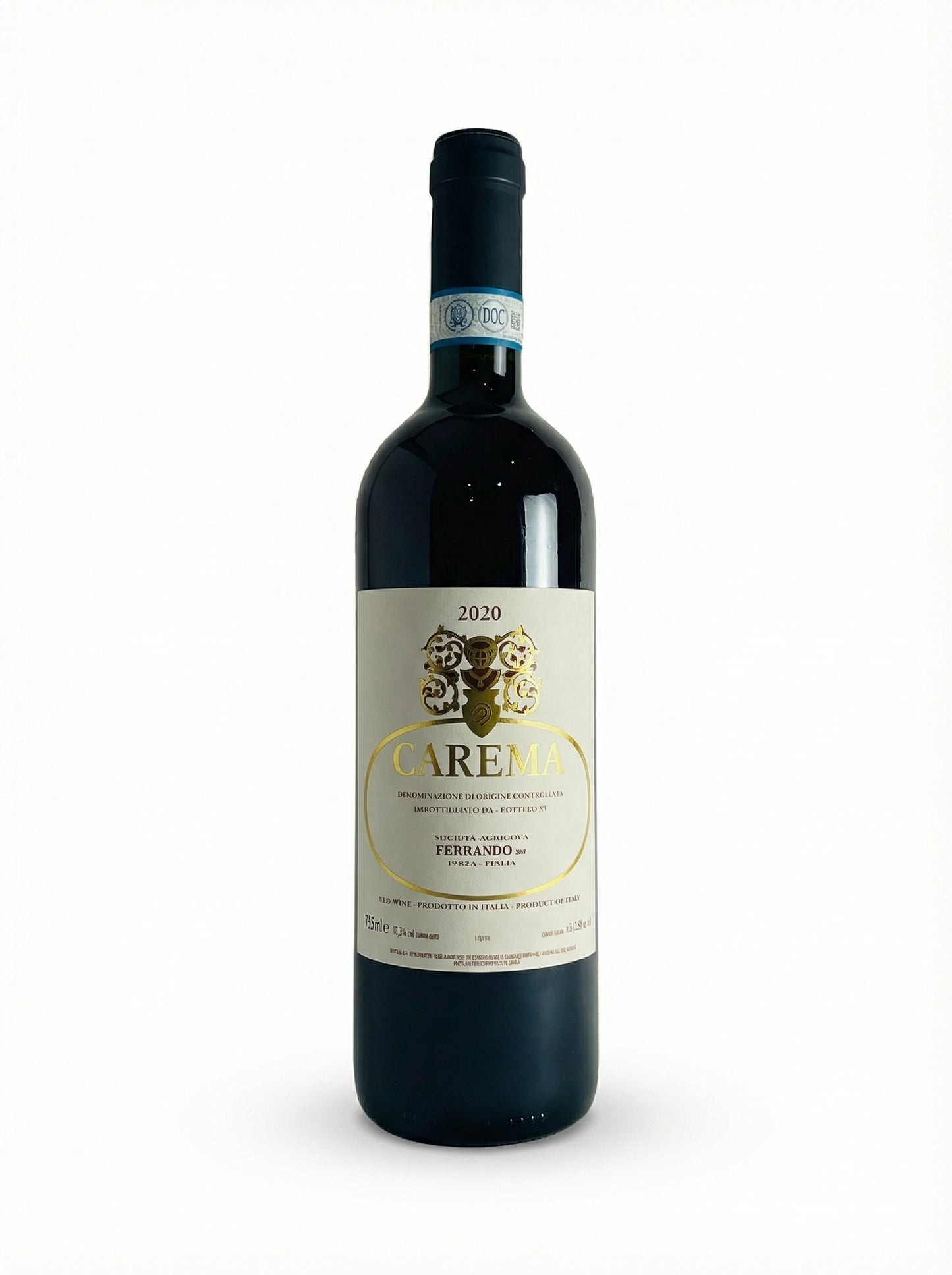2020 Luigi Ferrando Carema Etichetta Bianca
Ferrando’s Nebbiolo di Carema is produced exclusively from Nebbiolo grapes grown in high‐altitude vineyards beneath Mont Blanc in the Carema appellation of Piedmont, Italy. These vineyards, benefiting from full southern exposure and slate‐dominated soils, yield fruit that is typically harvested in the second half of October (often around the 20th). The grapes undergo fermentation in temperature‐controlled stainless steel vats with a skin maceration period ranging from approximately 10 days to two weeks. Following fermentation, the wine is aged for 30 to 36 months in a combination of large and small oak barrels, with a legally mandated minimum total aging period of four years before release. Production is limited, averaging around 7,200 bottles per annum (including a small number of magnums), and is crafted by the family estate led by Luigi Ferrando, whose techniques reflect both traditional practices and precise modern winemaking.
Regular price
$100.00
Regular price
Sale price
$100.00
Farming
Harvest
Nebbiolo grapes (as applicable) are gathered for processing.
Aging
Fermentation & Pre‐ Following harvest, a skin contact period (maceration/cuvaison) of 10–14 days is conducted in stainless steel vessels. Fermentation occurs in stainless steel vats—with some batches temperature‐controlled and others at ambient conditions using indigenous yeasts.
Aging & Bottling: Post‐fermentation, the wine is racked into oak for aging lasting 30–36 months. Barrel types include 20‐hectoliter Slavonian oak botti, used 500‐liter French barrels, and a mix of large and small barrels (with one practice allocating 30 months specifically in oak). Bottling is unfiltered, and release is permitted only after a minimum total aging period of four years.
Aging & Bottling: Post‐fermentation, the wine is racked into oak for aging lasting 30–36 months. Barrel types include 20‐hectoliter Slavonian oak botti, used 500‐liter French barrels, and a mix of large and small barrels (with one practice allocating 30 months specifically in oak). Bottling is unfiltered, and release is permitted only after a minimum total aging period of four years.


